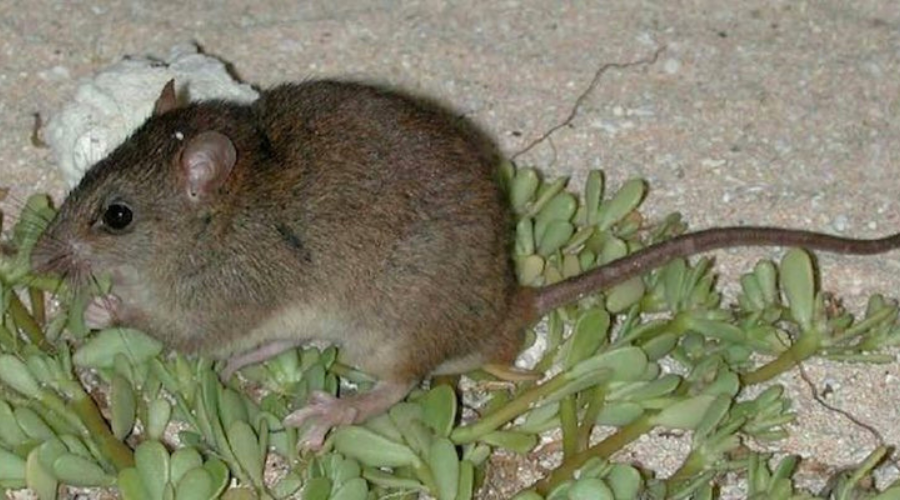Media Releases - 16 February 2023
Four years on, Australia's Wildlife Still in Crisis: The Bramble Cay Melomys Day a Sobering Call to Action

Saturday 18 February 2023 is a day of remembrance—Bramble Cay Melomys Day
18 February marks the fourth anniversary of the extinction of the first mammal lost to climate change and government inaction
In Australia, the species extinction queue gets longer and longer, with 140 plants and animals added or uplisted on Australia’s threatened species list since 2019
Federal Parliament must not squib the opportunity to properly reform Australia’s national environment law, and ensure there is proper funding to tackle wildlife extinction.
The fourth anniversary of the extinction of the Bramble Cay melomys marks a devastating turning point for Australia's threatened species. On 18 February 2019, the ‘small brown rat’ became the first mammal in the world to fall victim to the dangerous combination of government inaction and climate change, sending shockwaves around the globe.
But the tragedy of the Bramble Cay melomys is just the tip of the iceberg. Since then, a staggering 140 other animals and plants have been added to or uplisted on Australia's threatened species list.
It's clear that Australian governments and businesses have yet to grasp the gravity of the situation—that extinction is a choice. The nation has unfortunately earned the title of a world leader in both extinction and deforestation, with the Bramble Cay melomys serving as a haunting reminder of the failure of Australia’s national environmental law to adequately protect the environment.
According to Tim Beshara, Federal Policy Director for the Wilderness Society, "This animal had a recovery plan and if it was implemented and properly funded, the species wouldn't have gone extinct. Its extinction is just as much a result of the lack of political leadership as it is of climate change."
In just four short years, 112 plants and animals have been added to the threatened species list, including the greater glider, Watson's tree frog, and gang gang cockatoo. The pace of species slipping towards extinction has only accelerated, with 28 additional species like the koala, black grevillea, and Australian sea lion now listed as endangered or critically endangered. Time is running out for these species, and without immediate action, they may meet the same fate as the Bramble Cay melomys.
Labor has promised new national environmental laws and a new independent Environmental Protection Agency (EPA). But in order to truly honor the memory of the Bramble Cay melomys, they must ensure reforms are effective, fair and forward thinking—and that they actually turn around the wildlife extinction crisis and the destruction of natural and cultural values.
Beshara says, "The solution is straightforward. Parliament can and should bring in the new laws scientists, environmental lawyers and the community have been seeking for the past decade or more. Parliament must also make sure that the Federal Environment Department has the funding it needs to help these species beat extinction."
With extinction looming over Australia's wildlife, it's more crucial than ever that new nature laws are put in place and effective recovery plans are funded and implemented. Government must not let another species meet the same fate as the Bramble Cay melomys.
Changes to Australia’s threatened species list since 2019
Number of new species added to the list in the endangered or critically endangered categories | 93 |
Number of new species added to the list in the vulnerable category | 19 |
Number of species upgraded from vulnerable to endangered or critically endangered | 28 |
Number of species upgraded from critically endangered to extinct | 2 |
Number of species downgraded from critically endangered to endangered | 2 |
Number of species downgraded from endangered to vulnerable | 4 |
For interviews and further information please contact Diane Falzon: [email protected], 0430 596 699